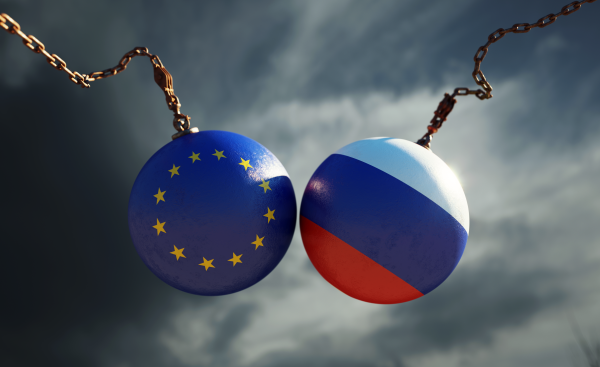The Council of the European Union has announced that it has adopted its 19th package of sanctions against Russia, expanding economic restrictions across energy, finance, trade and services.
The new measures also include parallel restrictions on Belarus to prevent circumvention of sanctions.

Energy sector: LNG ban and shadow fleet crackdown
A central component of the new package is the ban on Russian liquefied natural gas (LNG) imports into the EU:
- long-term contracts will end by January 2027,
- short-term contracts within six months of the regulation’s entry into force.
The EU has also tightened existing transaction bans on Rosneft and Gazprom Neft, while adding a Tatarstani oil conglomerate to the list of sanctioned entities.
Measures now cover third-country entities involved in circumventing restrictions, including two Chinese refineries and one Chinese oil trader purchasing Russian crude.
A key focus is on the so-called “shadow fleet” used to bypass the oil price cap. Companies such as Litasco Middle East DMCC and maritime registries issuing false flags to Russian-linked vessels are now sanctioned.
An additional 117 vessels were added to the port access ban, bringing the total to 557 ships, including non-EU tankers carrying Russian military goods or stolen Ukrainian grain. The EU has also banned reinsurance of shadow fleet vessels.
Financial sector: new bans and digital currency restrictions
The EU has also imposed broad financial restrictions. Eight foreign banks and traders from Tajikistan, Kyrgyzstan, the United Arab Emirates and Hong Kong are now under transaction bans, alongside five Russian banks: Istina, Zemsky Bank, Absolut Bank, MTS Bank, and Alfa-Bank, and four banks in Belarus and Kazakhstan.
EU operators are prohibited from engaging with the Russian National Payment Card System (Mir) and the Fast Payments System (SBP).
Additionally, the EU has restricted dealings with nine Russian special economic zones linked to defense and high-tech industries.
Trade and industrial controls: expanding the sanctions network
The trade-related measures target 45 new entities supporting Russia’s defense industry, including 17 companies in third countries (12 in China, three in India, and two in Thailand).
The new restrictions extend to dual-use items such as CNC machine tools, microelectronics, UAV components, and advanced alloys and chemicals. The EU has also banned exports of rubber products, tires and construction materials, and has prohibited imports of acyclic hydrocarbons.
The Council emphasized that the EU remains prepared to impose further sanctions as needed to maintain pressure on Moscow and prevent circumvention through third countries.